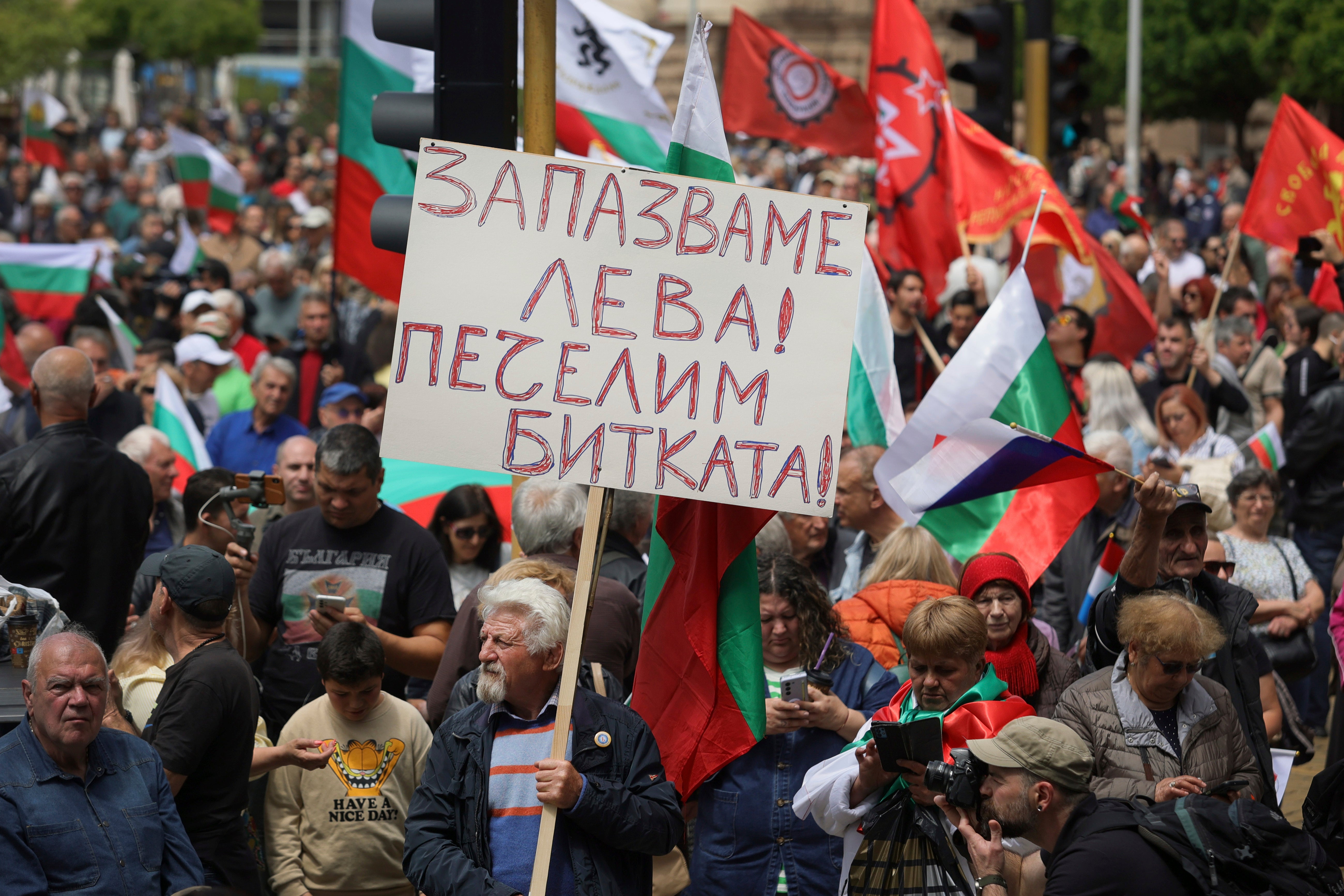The EU has given the green light for Bulgaria to join the euro from January 1 2026. This huge step towards European integration comes just six months after Bulgaria became a full member of the Schengen area, within which people can move freely across borders.
However, while rapprochement moves apace at the top level, euroscepticism shows little sign of abating at the grassroots level in Bulgaria or in national party politics.
Protests calling for Bulgaria to stick with its national currency have sprung up in both the capital city, Sofia, and in several towns around the country. A May poll showed that 38 per cent of Bulgarians were against the euro and only 21 per cent agreed that the switch should go ahead in January.
Others wanted to wait a few years. In a similar poll in January, 40 per cent of respondents said they never wanted Bulgaria to join the euro.
Anti-euro protests tend to be associated with the Bulgarian nationalist political parties. The most influential of these, Vazrazhdane, has become increasingly popular and won 13.63 per cent in the most recent parliamentary elections in October 2024. It had won just 2.45 per cent in elections held in April 2021.
Bulgaria joined the European Union in 2007. When, in December 2021, I interviewed a former spokesman for the political party NDSV (National Movement Simeon II), which was in government from 2001 to 2009, they said Bulgarians had very high expectations ahead of becoming part of the bloc.

They had thought it would take just a few years for Bulgaria to be as economically developed as Switzerland, and that their standard of living would soar. The dream was for Bulgaria to become the so-called “Switzerland of the Balkans”, as both countries have a similar population size and a similar tourist appeal.
The EU has channelled €16.3 billion into Bulgaria since the country joined the EU, particularly for infrastructure development. However, a year of fieldwork has shown me that Sofia has been the main benefactor of this investment.
Small municipalities and rural communities have not felt the benefit as clearly. Among the €16.3 billion, Sofia received €3.1 billion and Plovdiv received €0.8 billion.
Whereas Sofia gets new metro lines in recent years, citizens in some municipalities still struggle with basic public services for survival. Nearly 15 per cent of the country’s population struggles with a regular quality water supply.
The imagined “European” standard of life has not yet reached small municipalities and rural areas. Europe still feels far away.
Becoming part of the EU has given opportunities to Bulgarian citizens to work and live abroad in European countries. Official figures show 861,054 Bulgarian citizens lived in other EU countries in 2022. Recently, a total of 74 per cent of young people in Bulgaria are considering more or less seriously the idea of emigrating abroad.

However, the trend of young people working abroad in Europe has caused brain drain and has partially contributed to the decreasing population of Bulgaria, which fell from 7.68 million before it joined the EU in 2006 to 6.44 million in 2024.
According to a research analyst at a Sofia-based non-governmental organisation whom I interviewed recently, many Bulgarian parents hope that their children working abroad in Europe will return to work in Bulgaria, because jobs for migrants abroad tend not be for high-skilled workers.
Accession to the eurozone is more likely to benefit Sofia-based people who do business abroad rather than older people living local lives in small municipalities or rural areas. Younger and working people have already been shown to be the ones who benefited most from European integration in Bulgaria and Romania in the first place.
That said, support for EU membership has been rising recently.
Holding a coalition together
Despite euroscepticism, European integration is one of the few issues that unites Bulgaria’s fragile coalition government, although not all political parties agree with joining the eurozone.
Bulgaria held seven parliamentary elections between April 2021 and October 2024. It therefore has been a surprise that amid the political turmoil, the coalition government that was formed in October 2024 has survived. A very important motivational source here is unity on the question of Europe.
But with mixed results so far and with meaningful levels of opposition the joining the euro, Bulgaria’s government will have to be careful about the potential for eurosceptic movements to grow as they have in several other EU nations.
Yuxiang Lin is a Doctoral Researcher in the Centre for Russian, European and Eurasian Studies at the University of Birmingham.
This article is republished from The Conversation under a Creative Commons license. Read the original article.

 16 hours ago
2
16 hours ago
2






